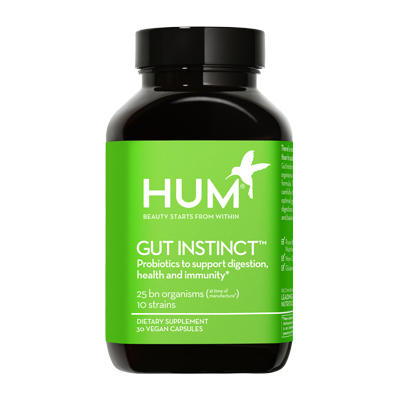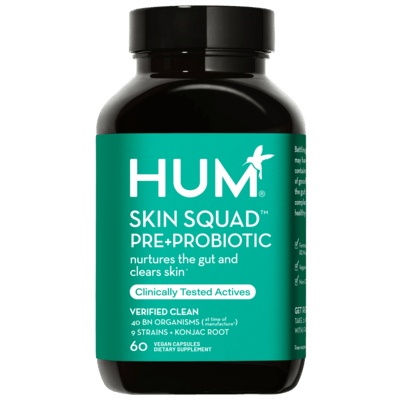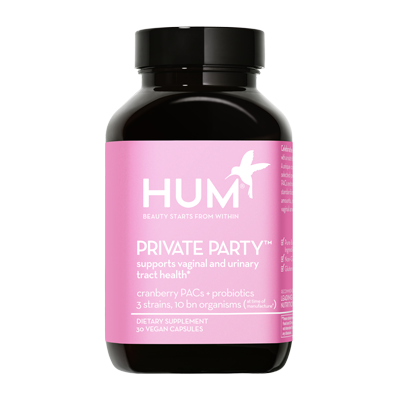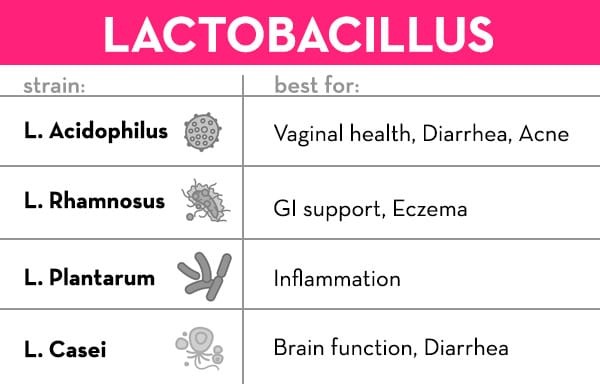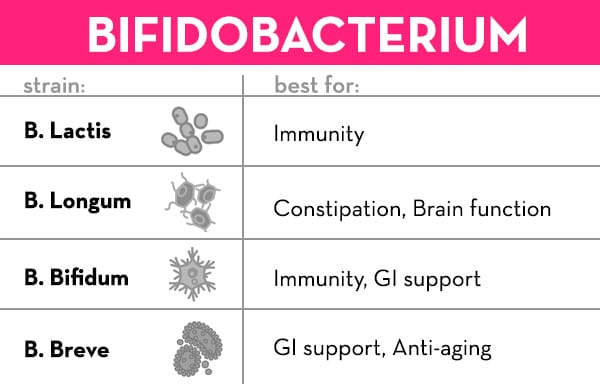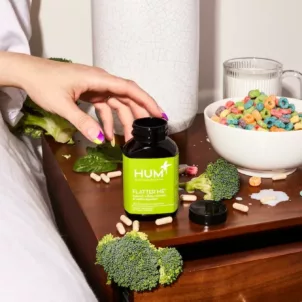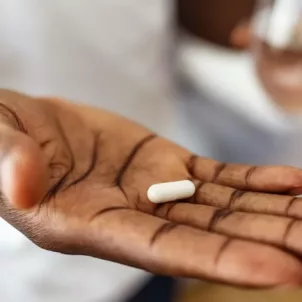The Guide to Choosing the Best Probiotic for You
As part of our series on digestive health, today we’re diving into the topic of probiotics. Our everything guide to finding the best probiotic for you is all about what these microorganisms are and the role they play in your digestion and beyond!
What are Probiotics?
When we think of bacteria, we often think about germs, sickness, and disease. But the truth is your body is the natural home to trillions of microorganisms that are essential to your health and well-being. Consider this: there are approximately 10 single-celled microbes for every single human cell in your body, averaging a total of 2.2 pounds! [1]
Probiotics are the live bacteria and yeasts that live in your body and keep your gut healthy. These friendly bacteria patrol your intestines and keep your digestive system running smoothly by helping digest food, destroying harmful pathogens, and producing vitamins.
Probiotics are especially helpful after a round of antibiotics, as these drugs kill both infectious and healthy bacteria. When healthy bacteria are killed off, the harmful bacteria flourish. This can lead to indigestion, flare-ups in the skin, or imbalances in the vaginal microbiome.
Probiotic Benefits
Having a healthy gut flora means an abundance for your health, digestion, well-being, and even beauty! As we saw last week, there’s ongoing communication between your GI and your brain, known as the gut-brain axis. This means a healthy gut can benefit the regularity of your digestion as well as cognitive function like mood and depression. Similarly, the gut-skin axis can affect the health and appearance of your skin.
How To Choose The Best Probiotic For You
While more research is necessary to fully understand the benefits of different probiotic strains, we do know that not all probiotics are created equal. The Lactobacilli, for instance, live in our digestive, urinary, and genital systems and can be found in some fermented foods like yogurt. Bifidobacteria normally live in the intestines as lactic acid bacteria, and are also found in fermented foods.
According to registered dietitian Alex Caspero, MA, RD, “For certain conditions, you want to ensure you’re taking the strand that is most likely to benefit you.” Here’s a simple breakdown to help you determine the best probiotic for you.
Probiotic Strains and Their Benefits
L. Acidophilus
Best Probiotic for: Acne, Vaginal Health, Diarrhea
L. acidophilus is one of the most widely recognized probiotics. Consumption of it has been steady since the 1920s when doctors would recommend acidophilus milk to treat constipation and diarrhea.
These microbes survive stomach passage and are able to colonize in the intestine. There’s good evidence looking at Acidophilus NCFM in treating vaginal infections. Other studies show that it has been demonstrated in humans to reduce problems associated with lactose intolerance and even decrease the risk of colon cancer [1].
However, it’s not just digestive woes that probiotics can help address. A clinical case series followed 300 patients who took a probiotic mixture of L. acidophilus and L. bulgaricus. They documented that 80% of acne patients had some degree of clinical improvement, particularly effective in inflammatory acne. Later, an Italian study involving 40 patients found L. acidophilus and B. bifidum supplementation produced better clinical outcomes in acne as well as better tolerance and compliance with antibiotics [2].
L. Rhamnosus
Best Probiotic for: ECZEMA
L. Rhamnosus is thought to be the most extensively studied probiotic in adults and children, and strong evidence shows that it colonizes the intestine. Gut flora is disrupted during travel, and healthy bacteria is killed off during a round of antibiotics. Rhamnosus GG has been found beneficial specifically for treating diarrhea associated with these cases [1].
Another exciting study found that this strain was also potentially beneficial in preventing eczema. The children of women who supplemented with it during childbirth were half as likely to develop atopic eczema by the age of four than the children of women who did not [2].
L. Plantarum
Best Probiotic for: Inflammation
In the gastrointestinal tract, L. plantarum can help regulate immunity and control inflammation. A 2007 study found that the probiotic could suppress an inflammatory response in the gut. Perhaps most significantly, a double-blind placebo-controlled study over four weeks concluded that L. Plantarum 299v provided effective symptom relief, especially of abdominal pain and bloating, in patients with IBS [1].
L. Casei
Best Probiotic for: GI support, Brain Function
Studies show some promising results with L. casei for digestive support and regulating diarrhea. One study on the effect of milk fermented by L. Casei strain DN-114 found that supplementation significantly reduced the incidence of diarrhea [1].
L. casei also made headlines when a study found it beneficial in relieving anxiety. The randomized, double-blind, placebo-controlled pilot study found supplementation with 24 billion units of the L. casei strain Shirota led to a rise in probiotics lactobacillus and bifidobacterium, as well as a significant decrease in symptoms of anxiety and depression [2].
Now let’s take a look at a separate class of probiotics, bifidobacterium.
B. Lactis
Best Probiotic for: Immunity
To boost the immune system, B. Lactis is a promising choice. One study had participants taking either a probiotic or a placebo for six weeks. At the end of this period, researchers measured antibody levels and found greater increases in antibodies of the B. lactis group than in placebo participants, concluding that this probiotic may help improve immune function [1]. In addition, a 2009 study found that supplementation of the strain B. lactis DN-173 led to self-reported improvements in digestive comfort [2].
B. Longum
Best Probiotic for: Constipation, Brain Function
B. longum is one of the first types of bacteria to colonize our bodies at birth. These important microorganisms ferment sugars into lactic acid, helping to stabilize the acidity of the GI tract and inhibit growth of harmful bacteria. For a group of adults prone to constipation, taking a mix of B. longum BB536 with milk or yogurt for two weeks increased bowel movements [1].
B. longum is also one of the species researched for the role of probiotics in the gut brain axis. A report from University College Cork found in a study of healthy men that supplementing with B. longum 1714 caused stress levels to decrease and memory to improve [2].
B. Bifidum
Best Probiotic for: Immunity, GI support
Time, stress, diet, and antibiotics can all deplete the body’s supply of B. bifidum. Researchers found that these microbes help regulate the innate immune response, your body’s first line of defense against infection.
B. bifidum has also been shown to prevent intestinal pathogens or digestive disrupters from flourishing in the gut, essential in restoring the bacterial balance and optimizing digestion. Clinical research found it supports a significant reduction in IBS symptoms, an improvement in quality of life and even helps relieve occurrences of ulcerative colitis, a chronic inflammatory bowel disease. [1].
B. Breve
Best Probiotic for: Anti-aging
A pilot study found that B. breve was effective in increasing stool frequency in children with functional constipation. These researchers also found a positive effect in stool consistency and relief in abdominal pain, making B. breve a promising addition for easing digestive woes like constipation [1].
Other studies looking at the benefit of probiotics on skin ailments found a fascinating trend. B. breve B-3 could potentially be used to prevent photo-aging induced by chronic UV irradiation [2]. This ability to mitigate the detrimental effects of UV exposure in sun damage is great news for keeping skin plump, hydrated, and youthful.
Not to be confused with streptococcal infections or the bacteria that causes strep throat, some species and strains of streptococcus have promising research on the benefits for health and well-being.

Streptococcus Thermophilus
Best Probiotic for: Skin Support
This probiotic displays antibacterial activity against harmful intestinal microbes, indicating a possibility to prevent diseases. A study on S. thermophilus in combination with L. casei and L. bulgaricus found reduced incidence of antibiotic-associated diarrhea with supplementation.
There is also promising research on this species for supporting skin. Ceramides are natural lipids that make up the surface of the skin structure. Depleted ceramide levels are clinically linked with dry and damaged skin. S. thermophilus was shown to have a beneficial effect on the level of ceramides in the barrier of the skin, which protects underlying tissue from infection, dehydration and chemicals. These skin-supporting microbes also act as antioxidants in the body, trapping reactive forms of oxygen that dry, damage and age the skin [1].
What to Look For When Buying Probiotics
If you think supplementing with a probiotic is right for you, dietitian Alex shares her tips on what you should know and look for when choosing the best probiotic supplement for your concerns.
Check expiration dates, make sure the bacteria is live, and look for CFUs (colony forming units) in the billions. Anything less isn’t as potent. A good brand specifies the amount of live organisms, and lists the exact strains used in their formula.
The label should also specify that the living microbes are viable through end of shelf life or best-by date rather than at time of manufacture to ensure the bacteria are still live when you take them and able to reach your colon. Quality trumps everything: Bargain supplements typically aren’t of good quality. Depending on strands, a good probiotic can cost anywhere from $25-$60.
Alex recommends one (or a combination) of the curated probiotic blends from HUM Nutrition:
- Gut Instinct supports the comprehensive health of your body and digestion with ten strains of probiotics and 25 billion organisms in each capsule.
- Skin Squad combines 40 billion organisms from nine different strains, all specifically chosen to support skin health.
- Private Party zeroes in on vaginal health with three probiotic strains to support a healthy vaginal pH and cranberry extract to help support urinary tract health.
How to Take AND Store Probiotics
Make sure to keep probiotics away from moisture and heat, which can kill off some of the microbes. You should always store supplements in a cool, dark place. Most strains of probiotics are fragile and should be protected from heat, so refrigeration is ideal.
